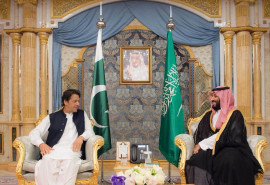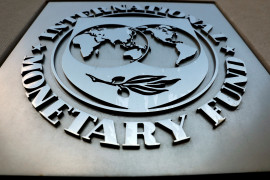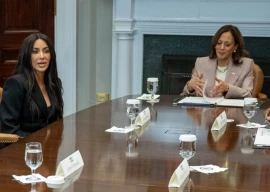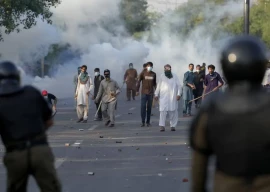
Speaking at the Energy Forum 2018, Rashid suggested to the government to extend the oil credit facility from 30 to 90 days, which would defer payment of $2 to $4 billion at a time when Pakistan was seeking a bailout package from the International Monetary Fund (IMF) due to dwindling foreign exchange reserves.
He said the oil sector had witnessed a significant change as previously only three oil marketing companies were operating, which now reached 25. The oil import bill was $12 billion in 2017, which would reach $18 to $20 billion in the current fiscal year if crude oil prices stayed at the existing level, he added.
The CEO said if pipeline infrastructure was upgraded in the country, it would lead to savings of $50 to $100 million, which would be passed on to consumers. Earlier, high-speed diesel was being pumped through the pipeline and now motor gasoline will also be transported through it.
Pakistan had average stocks of 20 days of petroleum products, he said and suggested that storages should be built through joint ventures to enhance the capacity.
The Shell chief said Pakistan was selling gasoline at the lowest rate compared with the rest of the world, but the question was whether a country like Pakistan could collect more taxes on its sale. “If taxes are increased on this product, there will be additional collection of $200-300 million in revenues.”
Also speaking at the Energy Forum, Minister for Petroleum Division Ghulam Sarwar Khan pointed out that the country would be facing a gas shortfall in December due to its growing demand from domestic consumers.
Azerbaijan offers Pakistan open oil credit facility
He said gas utilities were facing a revenue shortfall of Rs150 billion while 19 licences had been given for oil and gas exploration but no development had taken place in that regard.
The government would frame short, medium and long-term policies for energy projects, he said, adding past governments depended on thermal generation and agreements with independent power producers (IPPs) lacked transparency.
The minister highlighted that the National Accountability Bureau (NAB) and the Federal Investigation Agency (FIA) were investigating LNG deals due to lack of transparency.
Pakistan’s energy-related imports increase 34% to $1.27b
Turning to water resources, Khan pointed out that three rivers were given to India under an agreement inked in 1960 and big dams were built at the same time, adding Kalabagh dam was a practical project, but it was politicised whereas Bhasha Dam was only on papers.
Oil and Gas Regulatory Authority (Ogra) Chairman Uzma Adil said issues could be resolved by bringing transparency in projects. There was a proposal to merge upstream, midstream and downstream industries, she added.
All stakeholders should be taken on board for implementing the proposal of merging upstream, midstream and downstream industries, she said, adding the merger would bring improvement to the oil and gas sector.
Published in The Express Tribune, October 18th, 2018.
Like Business on Facebook, follow @TribuneBiz on Twitter to stay informed and join in the conversation.






























1714024018-0/ModiLara-(1)1714024018-0-270x192.webp)










COMMENTS (2)
Comments are moderated and generally will be posted if they are on-topic and not abusive.
For more information, please see our Comments FAQ